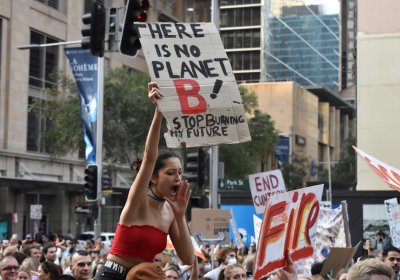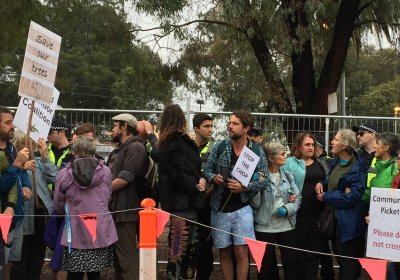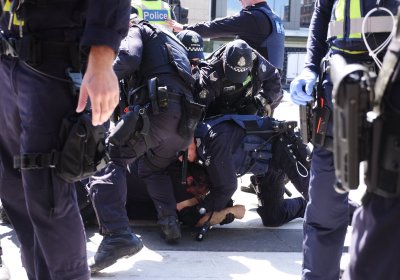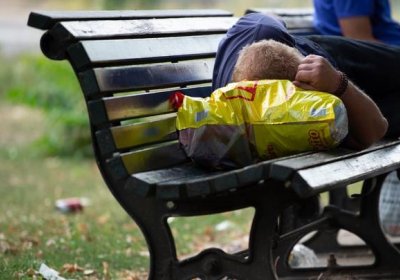Panic buying is a normal response in a dog-eat-dog system that is clearly failing to meet essential needs, argues Sue Bolton.
Sue Bolton
Moreland councillor and Socialist Alliance member Sue Bolton speaks to Green Left Radio about the social implications of the COVID-19 outbreak.
Sue Bolton asks why, the day after Rowan Baxter brutally incinerated his ex-partner Hannah Clarke and their children, the detective in charge of the investigation could publicly query whether the “husband” had been “driven too far”.
Residents put in a huge effort to save the historic Gandolfo Gardens. But they were thwarted by a system that privileges bureaucrats who were never going to be directly affected by the destruction of the trees, writes Sue Bolton.
Animal rights activist in Melbourne have harmed the climate movement and their own cause by attempting to stack meetings and ram through demands, argue Jacob Andrewartha and Sue Bolton.
Australia is burning and unless we all step up, it will continue to burn. While firefighters and emergency personnel and thousands upon thousands of ordinary people have stepped in to fill the breach, in the cities we too can play our part.
The residents’ battle to save the trees in the historic Gandolfo Gardens is far from over, despite the Herald Sun’s claim that it “has ended”.
Far-right extremist Phillip Galea was convicted of planning a terrorist attack. His convinction is welcome, writes Sue Bolton, but others need to be brought to account.
Q&A's deliberate decision to exclude any Palestinian point of view follows a long pattern of misrepresenting and ignoring Palestinian voices in the corporate media.
That two police officers have been condemned for inappropriate conduct indicates that public backlash over the police violence has had an effect. But for the government and police, it is a good way to deflect attention from the role the police play in society.
Australian mining companies are making a killing in Africa — literally.
Between 2004-15, Australian-listed mining companies were linked to more than 380 mine-related deaths in several African countries, according to the Centre for Public Integrity and the International Consortium of Investigative Journalists.
A public debate has erupted over a decision by Moreland council, in Melbourne’s inner-north, to install armrests on benches outside Coburg Library.
- Previous page
- Page 6
- Next page











